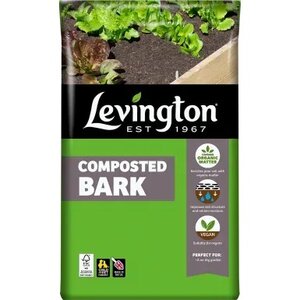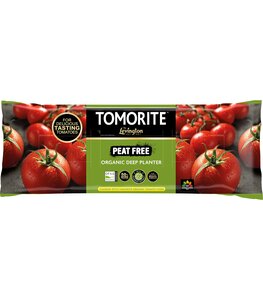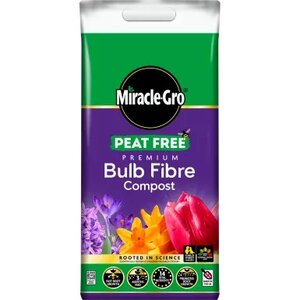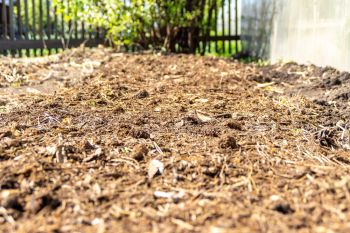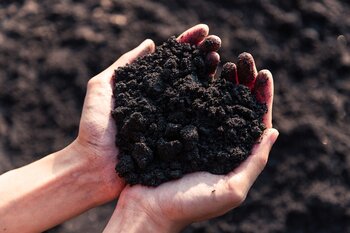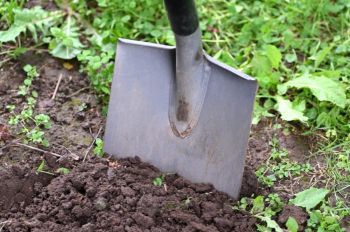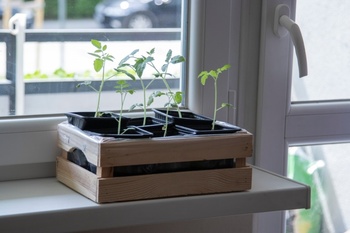Soil, Compost & Bark
Soil, composts, and bark play an essential role in gardening, providing essential nutrients and support for plants to grow and thrive. Browse our online assortment to see all types of soils, composts, and bark available and scroll down to learn how they can be used to support your garden.
At Thompson's all of the compost and growing media we purchase from our suppliers is now Peat Free and we only sell Peat Free Compost.
Choosing the right compost
- Sowing Seeds? Look for seed & cutting compost
- Planting New Plants? for shrubs, perennials, climbers & bedding plants use a good quality multipurpose compost
- Potting & Containers? Use multi-purpose compost or specific container & basket compost
- Soil Improver? Use a specific soil improver or farmyard manure
- Houseplants? Use a houseplant compost or a specific mix for plants such as cacti, citrus, orchids or bonsai
- Reduce Weeds & Watering? Use mulches like bark or choir chop to keep moisture in and block weeds
- Growing Acid-Loving Plants? Choose a special ericaceous mix for plants like rhododendrons, camellias & azaleas
Filter products
Soils
Different types of plants have different soil requirements, so it's important to choose the right soil for your garden. For example, some plants prefer well-draining soils, while others prefer soils with higher moisture-retaining capacity. You can purchase premixed garden soil or build your own blend by mixing together different types of soil.
Types of soils
- Sandy soil: Sandy soil is light and well-drained, making it ideal for plants that don't require a lot of moisture.
- Clay soil: Clay soil is heavy, dense, and often high in nutrients. It is ideal for plants that require a lot of moisture.
- Loamy soil: Loamy soil is a mixture of sand, clay, and organic matter, making it ideal for a wide range of plants.
Do a soil test
How do you know what type of soil you have? Do a soil test! A soil test is an essential step in determining the health and fertility of your soil and can help you make informed decisions about what to grow in your garden and what types of soil amendments to use. Here's how to perform a soil test:
- Choose a representative sample of soil from your garden. Take several samples from different areas, and mix them together in a clean container.
- Remove any rocks, roots, or plant debris from your soil sample.
- Use a soil test kit to measure the pH, nitrogen, phosphorus, and potassium levels in your soil. Most soil test kits include instructions for taking the sample and interpreting the results.
- Record your results, and compare them to the recommended levels for the type of plants you want to grow.
- Based on your soil test results, you may need to adjust the pH of your soil, add compost or other organic matter, or use fertiliser to provide the nutrients your plants need. By testing your soil regularly, you can ensure that your garden is receiving the right mix of nutrients and can adjust your gardening practices accordingly.
What is compost
Compost is a type of organic matter that decomposes and breaks down into a rich, soil-like substance. It is made by combining yard waste, food scraps, and other organic materials, allowing them to decompose over time through microbes and other decomposers. Compost is commonly used as a natural fertiliser for gardens and farm crops and can improve soil structure, water-holding capacity, and nutrient content.
Types of compost
- Leaf compost: Leaf compost is made from fallen leaves and is ideal for adding organic matter to the soil.
- Grass compost: Grass compost is made from mowed grass and is rich in nitrogen, making it ideal for feeding plants.
- Kitchen compost: Kitchen compost is made from fruit and vegetable scraps and is ideal for adding nutrients to the soil.
How to make your own compost
- Start by choosing a compost bin or heap and selecting a location that is well-drained and in partial shade.
- Layer brown materials (such as leaves or twigs) and green materials (such as kitchen scraps or grass clippings) in your compost bin or heap.
- Water the compost regularly, and turn it in every few weeks to help it break down faster.
After several months, the compost will be ready to use and can be added to your soil to provide nutrients and improve soil structure.
What is bark
Bark mulch is a popular garden product used for improving soil structure, retaining moisture, and suppressing weeds. Different types of bark have varying characteristics, such as colour, texture, and composition, so choosing the right bark for your specific gardening needs is important. When buying bark, it's important to consider factors such as the type of plants you have, the size and layout of your garden, and your personal preferences.
Types of bark
- Pine bark: Pine bark is a light-coloured mulch that is ideal for use in ornamental gardens.
- Cedar bark: Cedar bark is a reddish-brown mulch that is ideal for use in acid-loving gardens.
- Hardwood bark: Hardwood bark is a darker mulch that is ideal for use in vegetable gardens, as it provides nutrients to the soil.
Buy soils, compost and bark at Thompson's Plant & Garden Centre
Soils, compost, and bark are important components in creating a healthy and thriving garden. When buying these products, it's important to consider the specific needs of your plants and garden, as well as your own gardening goals and preferences. When buying soils, compost, and bark, it's important to choose products that are high quality, suit your specific gardening needs, and are affordable and accessible. Visit one of our garden centres, and we will provide you with the best advice on the best products for your garden.
Need a hand in the garden? Thompson’s is here to help. Our Garden Advice section is packed with practical tips, easy how-tos and inspiring ideas to help you grow with confidence and take your garden to the next level.

